Did these five super-rich families hold on to their fortunes?
Old-money families in the 21st century
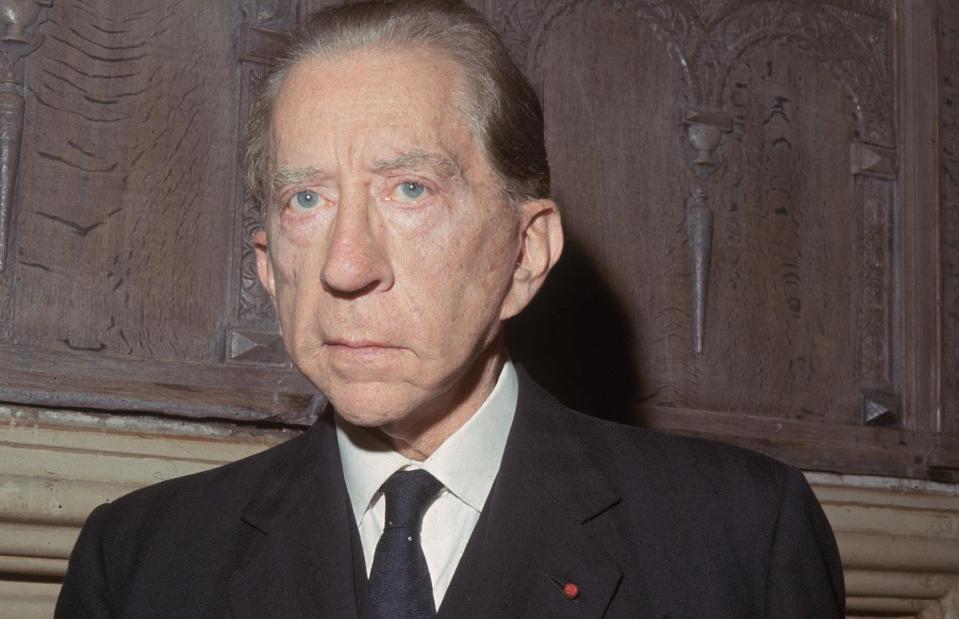
Hulton Archive/Getty
The Vanderbilts, Gettys, and Rothschilds are synonymous with extreme wealth, but are these legendary old-money families still as rich and powerful in 2024?
Read on as we discover how the fortunes of the descendants of five of the world's most illustrious dynasties have fared in the 21st century.
All dollar amounts in US dollars.
The Hearsts: then
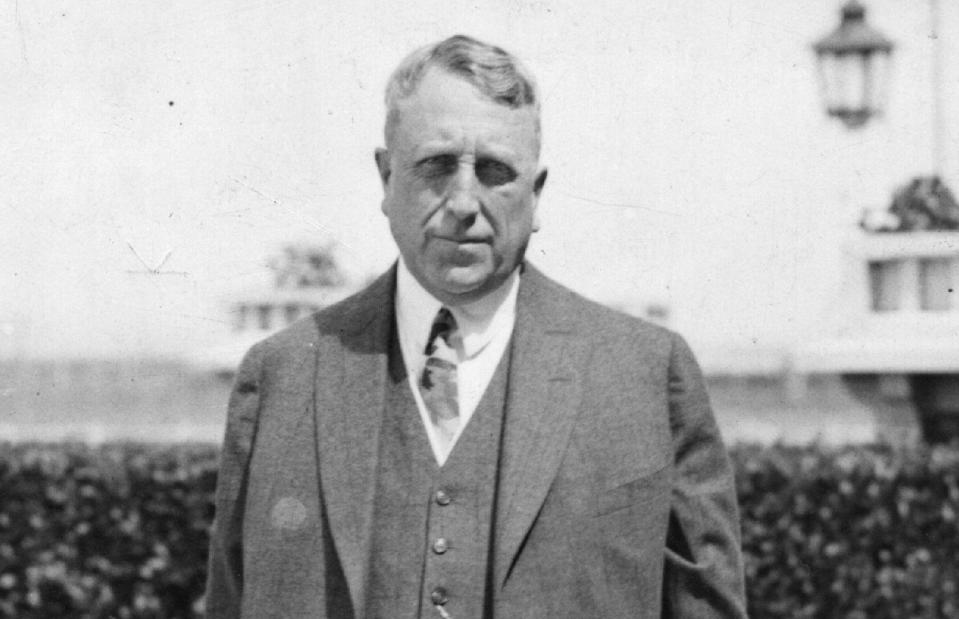
Hulton Archive/Getty
The original media mogul and the inspiration behind Orson Welles' Citizen Kane, William Randolph Hearst owned 28 major newspapers and 18 magazines at the peak of his career. He inherited a significant sum from his father, George Hearst, a mining magnate and politician considered to be one of America's first tycoons.
Despite being known for his extravagant spending, he was worth the equivalent of around $2.4 billion (£1.9bn) in today's money when he died in 1951.
The Hearsts: now

Courtesy Hearst Corporation
Unlike other dynasties, who in the most part gave away or squandered their money, the Hearsts held on to and expanded the family business.
These days, the living heirs, who number around 67, are said to be worth $22.4 billion (£17.6bn) according to the most recent estimate by Forbes, which also ranks them as America's 14th richest family.
The Hearsts: now
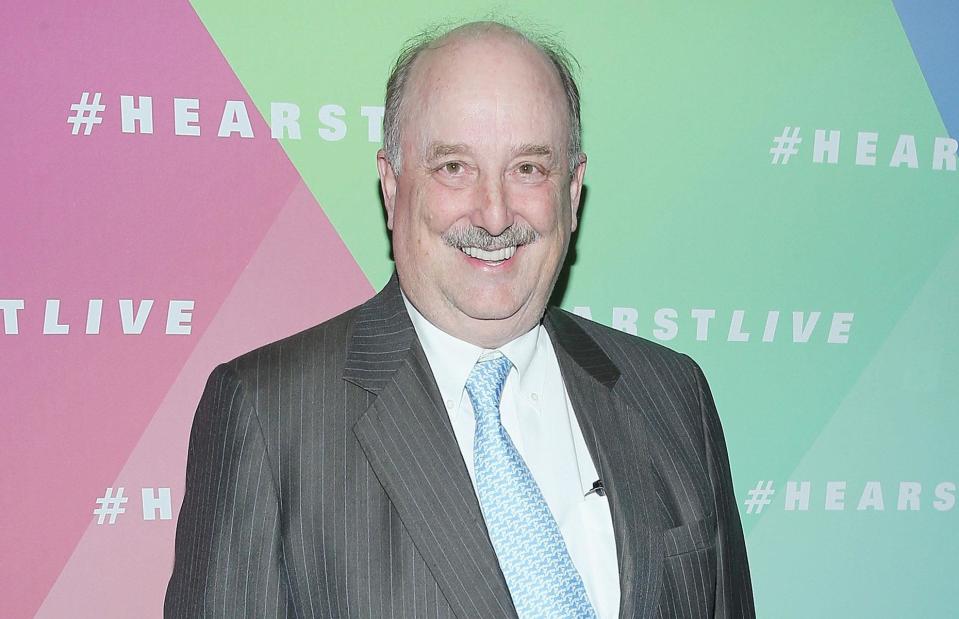
Jemal Countess/Getty
The Hearsts are still very much involved in the family company. The patriarch's grandson, William Randolph Hearst III (pictured), is the current chairman of the Hearst Corporation and presides over the clan's charitable foundation. He was worth $2.3 billion (£1.8bn) at the last count, though this figure hasn't been updated in some years.
Sharing the family fortune, George Randolph Hearst III, a great-grandson of William Randolph Hearst, is the publisher and CEO of Upstate New York's Times Union newspaper and a director of the Hearst Corporation.
The Hearsts: now
![<p>By Unknown author/Wikimedia Commons [Public domain]</p>](https://s.yimg.com/ny/api/res/1.2/UclbHcTVYMHLyNe1R3F7tQ--/YXBwaWQ9aGlnaGxhbmRlcjt3PTk2MDtoPTYxOQ--/https://media.zenfs.com/en/lovemoney_uk_264/318f27c0422276ce83420f24568fd295)
By Unknown author/Wikimedia Commons [Public domain]
Another descendant, Patty Hearst, a granddaughter of William Randolph Hearst, was famously kidnapped and held hostage in 1974 by terrorist group the Symbionese Liberation Army. A victim of Stockholm Syndrome, Patty actually ended up robbing banks for the terrorists.
When she was eventually discovered, she was arrested and jailed, but her sentence was later commuted and she was pardoned by President Clinton in 2001. Now a noted philanthropist, Patty Hearst is reportedly worth around $50 million (£39m).
The Hearsts: now

Rich Polk/Getty
Patty's daughter, the model and actress Lydia Hearst (pictured), is likely to be even richer with an estimated fortune of $100 million (£78m). She's married to actor Chris Hardwick.
Other notable members of the family today include model Amanda Hearst ($100m/£78m), Patty's sister Anne Hearst ($50m/£39m) and TV and film producer John Hearst, who's thought to be worth a whopping $1.9 billion (£1.5bn).
The Rockefellers: then
![<p>Rockefeller Archive Center/Wikimedia Commons [Public domain]</p>](https://s.yimg.com/ny/api/res/1.2/auYULV4W3hEiW13dVLEnsg--/YXBwaWQ9aGlnaGxhbmRlcjt3PTk2MDtoPTYxOQ--/https://media.zenfs.com/en/lovemoney_uk_264/9b07acc6c6f656de00c3c1c5d21fb47f)
Rockefeller Archive Center/Wikimedia Commons [Public domain]
Ohio entrepreneurs John D. Rockefeller (pictured) and William Rockefeller Jr. founded Standard Oil in 1870. By the 1880s, the brothers were among the richest people in the US. In 1916, John D. Rockefeller became America's first billionaire.
The Rockefellers: then
![<p>Oscar White/Wikimedia Commons [Public domain]</p>](https://s.yimg.com/ny/api/res/1.2/XplAh6eTZO6AXRfx3V7q.w--/YXBwaWQ9aGlnaGxhbmRlcjt3PTk2MDtoPTYxOQ--/https://media.zenfs.com/en/lovemoney_uk_264/47a81f24248452b98d3e56c7de3f80d2)
Oscar White/Wikimedia Commons [Public domain]
The richest private individual in modern history, John D. Rockefeller boasted an estimated net worth of $1.4 billion at the time of his death in 1937, the equivalent of $21.7 billion (£17bn) in 2024. However, some financial scholars have even suggested he may have been worth somewhere in the region of $400 billion (£315bn) in today's money.
One of the fathers of modern philanthropy, the Rockefeller patriarch donated the bulk of his wealth to good causes.
The Rockefellers: now

Zangrilli Andrea/Shutterstock
What is left of the Rockefeller family fortune is stashed away in charitable trusts or divided among hundreds of descendants. The clan's collective net worth today is an estimated $10.3 billion (£8.1bn), according to Forbes, but this figure may be on the conservative side.
What is certain is that the various family charitable trusts control hundreds of millions of dollars and have helped fund arts and conservation projects, healthcare and international trade initiatives, and much more.
The Rockefellers: now
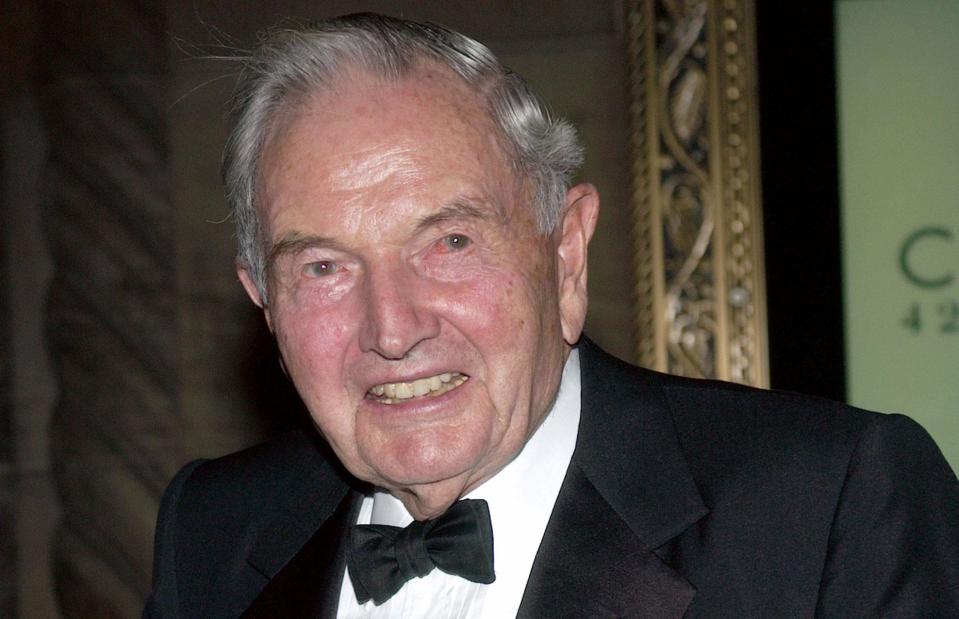
Lawrence Lucier/Getty
The most prominent member of the family to die recently was David Rockefeller, who passed away at age 101 in 2017. At the time of his death, he was the world's oldest billionaire, as well as the last living grandchild of John D. Rockefeller.
David had a net worth of around $3.3 billion (£2.6bn) and, like his grandfather, was involved in charitable works. His will stated that once all assets had been liquidated, over $700 million (£520m) should be donated to a range of non-profit organisations. Beneficiaries included Harvard, the Museum of Modern Art, and the Rockefeller University.
His son, David Rockefeller Jr, has held various positions in the family business and is a trustee of the Rockefeller Brothers Fund and the David Rockefeller Fund. He's worth considerably less than his late father as the family's wealth becomes ever more diluted.
The Rockefellers: now
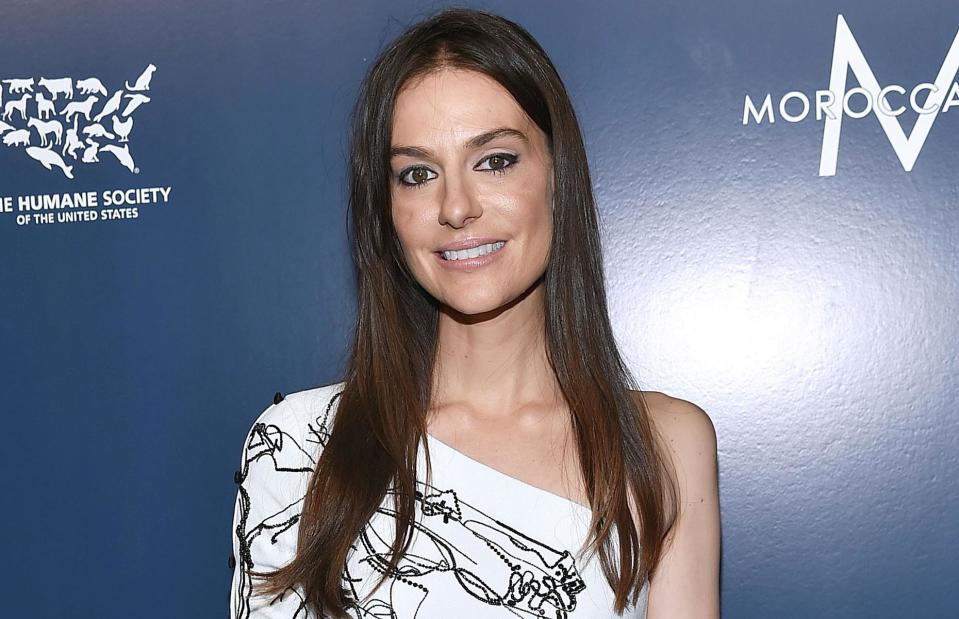
Mike Coppola/Getty
Other living scions of note include designer Ariana Rockefeller (pictured), and retired politician Jay Rockefeller, who has an estimated personal fortune of $160 million (£126m). Ariana's net worth is difficult to pin down, but some estimates have put it well over the billion dollar mark.
The Rockefeller family is still very active in philanthropy, with a strong focus on global health and world hunger. The Rockefeller Foundation's website also highlights its desire to expand economic opportunities among struggling families.
As part of the organisation's public presence, it also regularly celebrates the philanthropic efforts of others. In 2013, for example, Elton John was given the Rockefeller Foundation Lifetime Achievement Award for his role as an advocate for people with HIV/AIDS.
The Rothschilds: then
![<p>Elbert Hubbard/Wikimedia Commons [Public domain]</p>](https://s.yimg.com/ny/api/res/1.2/0Yisv5EnENr0EkcGjKcwww--/YXBwaWQ9aGlnaGxhbmRlcjt3PTk2MDtoPTYxOQ--/https://media.zenfs.com/en/lovemoney_uk_264/51442afc3920a7ae1193b3848cdb77c4)
Elbert Hubbard/Wikimedia Commons [Public domain]
The patriarch of the Rothschild banking dynasty and founding father of international finance, Mayer Amschel Rothschild was born in Frankfurt's Jewish ghetto in 1744 and rose to become Europe's leading banker.
The Rothschilds: then
![<p>Alonso de Mendoza/Wikimedia Commons [Public domain]</p>](https://s.yimg.com/ny/api/res/1.2/s3_AOQqkfR3bdy8Pm8RC5Q--/YXBwaWQ9aGlnaGxhbmRlcjt3PTk2MDtoPTYxOQ--/https://media.zenfs.com/en/lovemoney_uk_264/87133e9266a9c5f95eb29395ce12bb9b)
Alonso de Mendoza/Wikimedia Commons [Public domain]
The Rothschild patriarch bequeathed his wealth to his five sons, who established branches of the family in France, England, Italy and Austria. For much of the 19th century, the Rothschild family was the richest in the world.
This image shows Nathan Mayer Rothschild, the originator of the English branch of the family.
The Rothschilds: now
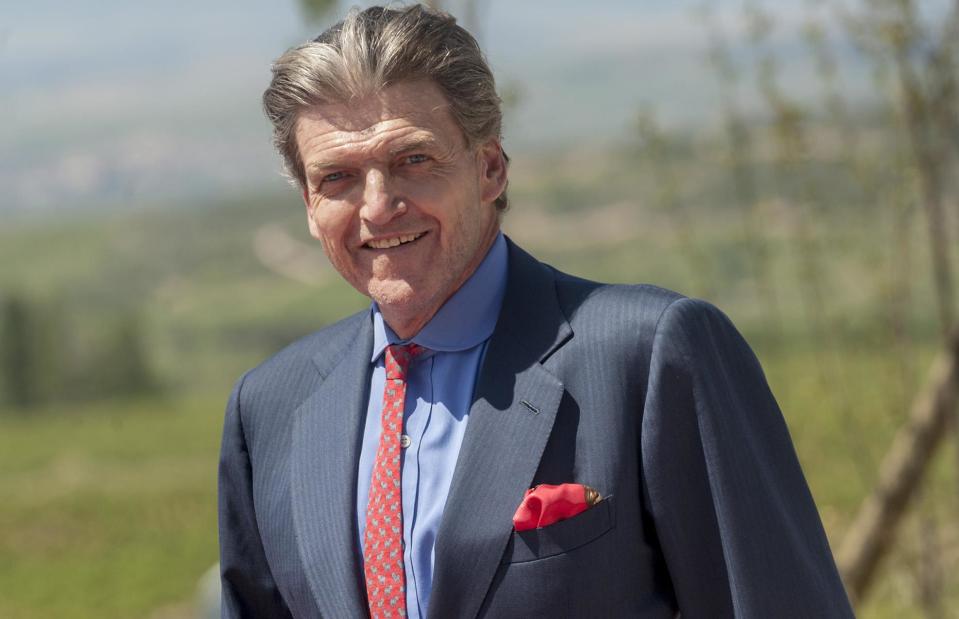
Gari Garaialde/Getty Images
Over the years, the family fortune has been divided among the many descendants of Mayer Amschel Rothschild and has funded everything from splendid châteaux to mining and energy companies and large-scale philanthropic endeavours. The Rothschilds have been frequently targeted by anti-Semitic conspiracy theorists, who grossly exaggerate the family's wealth and influence. In reality, the clan is far from being the richest on the planet.
The richest member from the French branch of the family, banker Baron Benjamin de Rothschild, died suddenly from a heart attack in January 2021. He had a net worth of $1.1 billion in April 2020, according to Forbes, the equivalent of $1.3 billion (£1bn) in today's money, making him the richest individual Rothschild.
The Rothschilds: now
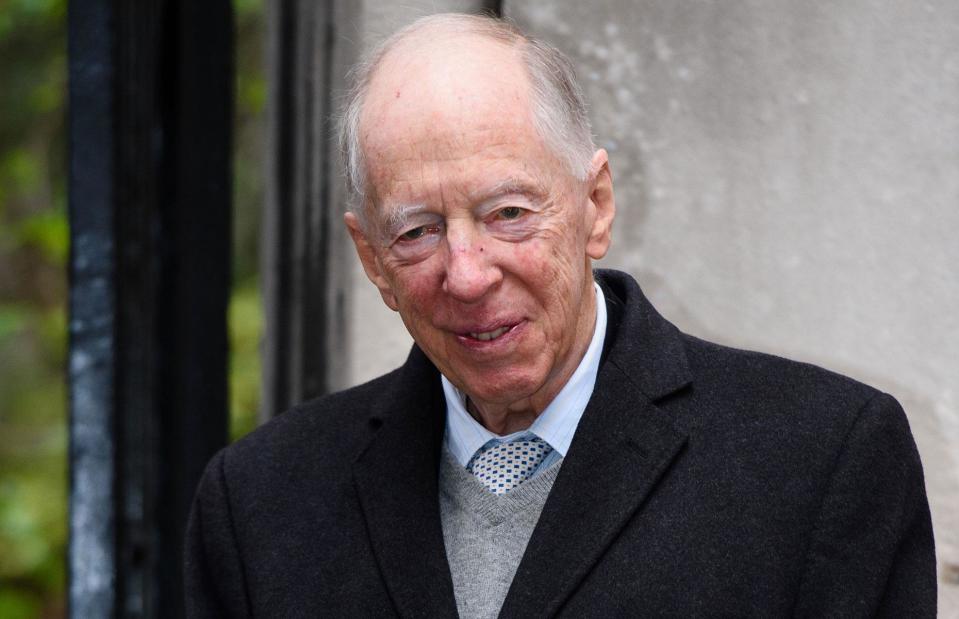
Leon Neal/AFP/Getty
Jacob Rothschild, 4th Baron Rothschild, was the wealthiest member of the English branch of the family until his death in February this year. The retired investment banker had a net worth of $1 billion (£785m) according to Bloomberg.
His daughter Hannah is a filmmaker, author, and chair of the board of trustees of the National Gallery in London.
The Rothschilds: now

Jamie McCarthy/WireImage
Other notable members of the Rothschild dynasty today include James Rothschild, who's married to Nicky Hilton, sister of Paris. He's estimated to have a fortune in the region of $1.3 billion (£1bn).
Meanwhile, film producer and adventurer David Mayer de Rothschild has an estimated net wealth of $10 billion (£7.9bn), according to some online sources. Elsewhere, Olivia de Rothschild, the 21-year-old daughter of the late Benjamin de Rothschild, has been tipped to play a major part in the family business.
The Gettys: then
![<p>Aaron Tycko/Wikimedia Commons [Public domain]</p>](https://s.yimg.com/ny/api/res/1.2/1Vpo5XOXqIk8RzxMgF2.pg--/YXBwaWQ9aGlnaGxhbmRlcjt3PTk2MDtoPTYxOQ--/https://media.zenfs.com/en/lovemoney_uk_264/30bbd2b06d1c5ce31e01b30f8c57da8c)
Aaron Tycko/Wikimedia Commons [Public domain]
The Getty family fortune derives from patriarch George Getty (pictured) who had the foresight to invest in America's burgeoning oil industry in 1903. His son, J. Paul Getty, founded the Getty Oil Company in 1942 and was the richest private citizen in the world by the 1950s.
The Gettys: then
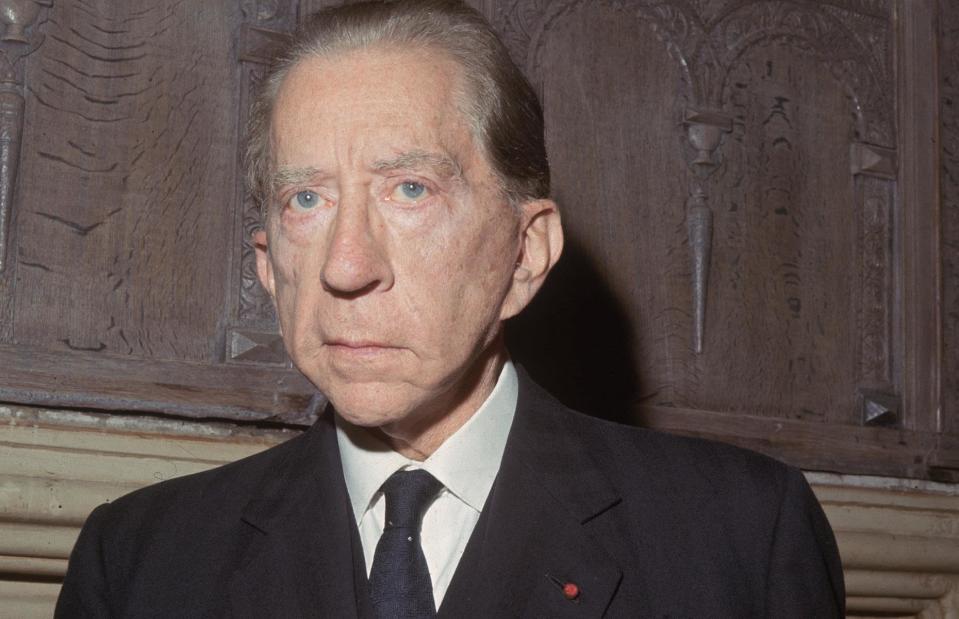
Hulton Archive/Getty
Notoriously frugal, J. Paul Getty complained about his dying son Timmy's medical bills. When his grandson John Paul Getty III was kidnapped in Rome in July 1973 by gangsters he famously refused to stump up the ransom cash.
J. Paul Getty attempted to negotiate and only agreed to part with a reduced ransom payment after the gangsters cut off his grandson's ear and sent it to an Italian newspaper, along with a lock of his hair.
The Gettys: then
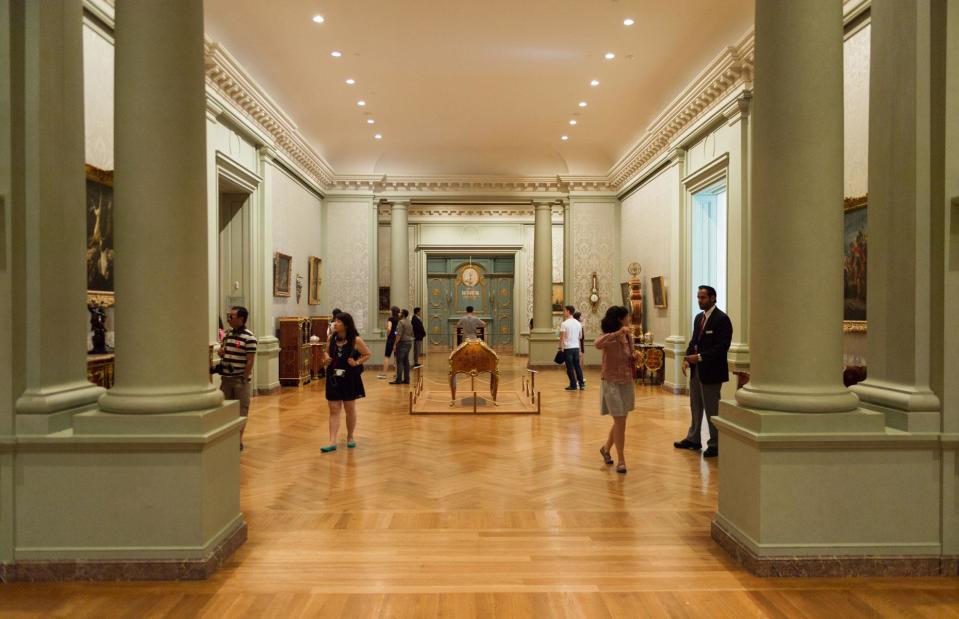
Anton Ivanov/Shutterstock
J. Paul Getty died at his Surrey mansion in 1976 at the ripe old age of 83, leaving behind a fortune of around $5 billion, the equivalent of $27 billion (£21bn) in today's money. Only a fraction of his wealth was bequeathed to his family.
Most of the money was channelled into the J. Paul Getty Trust, now the world's wealthiest art institution. J. Paul may have been the meanest billionaire of all time, but when it came to acquiring fine art, the industrialist was anything but penny-pinching. By the time of his death he'd amassed an enviable collection featuring works by Rembrandt, Tintoretto, and Monet, most of which are now housed in the Getty Museum in California.
The Gettys: now

dpa picture alliance/Alamy Stock Photo
A trust fund consisting of shares in Getty Oil set up by J. Paul Getty's mother was the main source of wealth for the surviving members of the Getty family. Investor, philanthropist and acclaimed composer Gordon Getty (pictured), J. Paul Getty's fourth child, is the richest living family member today. He sold Getty Oil to Texaco for $10.1 billion in 1984, and is currently worth $2.1 billion (£1.7bn), according to Forbes.
Tragically, Gordon's son John Gilbert Getty, who was a musician, died of complications following a drug overdose in November 2020. His film director brother Andrew had died five years earlier from an intestinal ulcer, although he was also found to have toxic levels of methamphetamine in his body at the time.
The Gettys: now
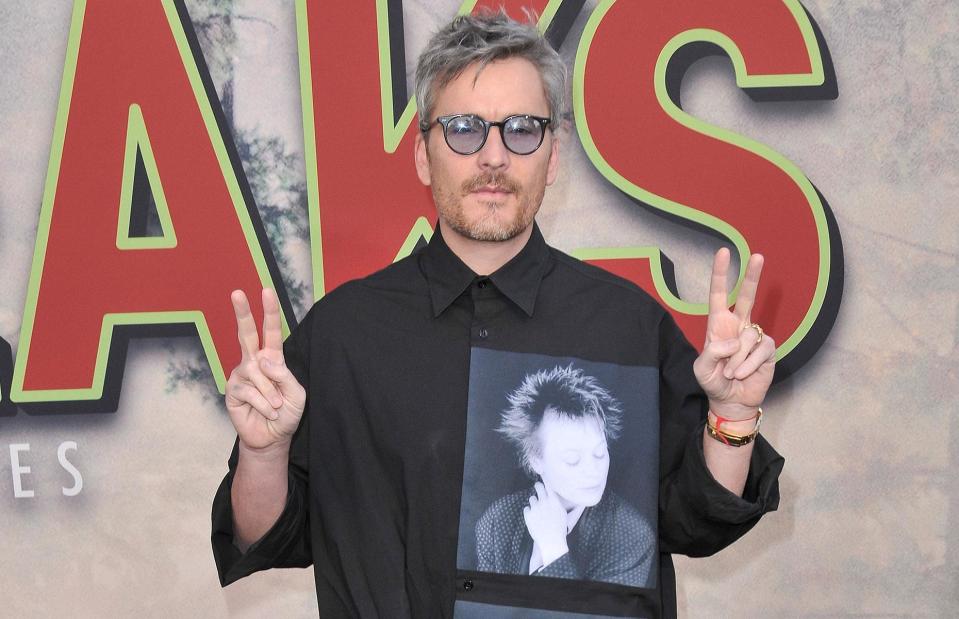
Jason LaVeris/FilmMagic
While the Gettys dropped off Forbes' list of America's richest families almost a decade ago, today's descendants are far from poor. J. Paul Getty's grandson Mark Getty, the co-founder of the picture library Getty Images, has an estimated net worth today of $500 million (£392m). He's set to boost his bank balance further after recently selling his stake in the company, which was valued at $4 billion (3.1bn)
Meanwhile, actor and musician Balthazar Getty (pictured) is said to have a fortune of some $200 million (£157m).
The Vanderbilts: then
![<p>Mathew Brady's studio, restored by Michel Vuijlsteke/Wikimedia Commons [Public domain]</p>](https://s.yimg.com/ny/api/res/1.2/1ATZUpJwyZgphn.Ky5aBpA--/YXBwaWQ9aGlnaGxhbmRlcjt3PTk2MDtoPTYxOQ--/https://media.zenfs.com/en/lovemoney_uk_264/2192360e0d9507b81f79c293c38f6b57)
Mathew Brady's studio, restored by Michel Vuijlsteke/Wikimedia Commons [Public domain]
Gilded Age icons, the Vanderbilts amassed a colossal fortune from railroads and shipping during the latter half of the 19th century. Patriarch Cornelius Vanderbilt (pictured) was the wealthiest person in the US by the 1860s, while his son William Henry Vanderbilt was the richest American during the 1870s and early 1880s.
The Vanderbilts: then
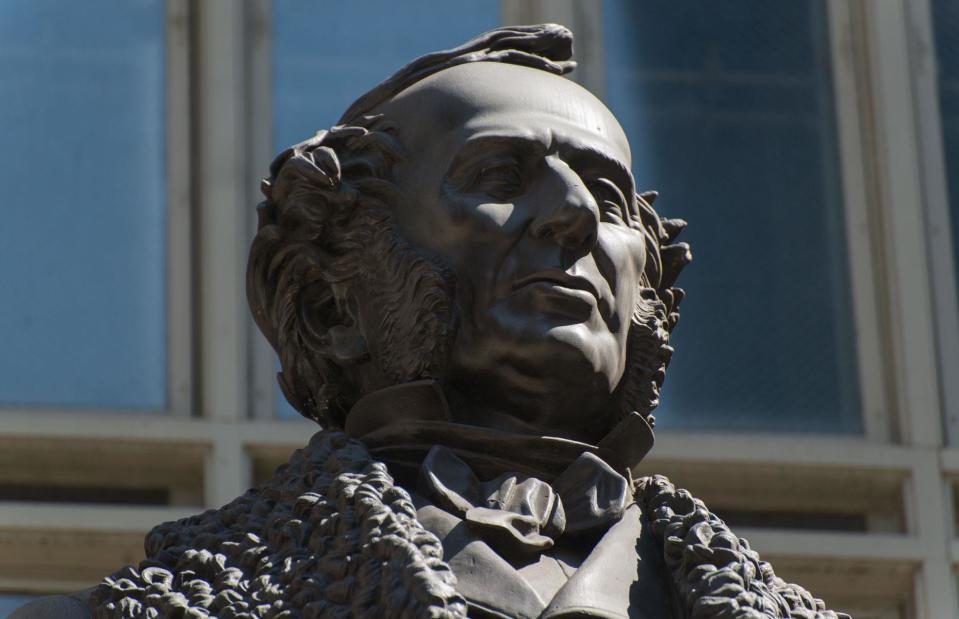
Felix Lipov/Shutterstock
Renowned for their philanthropy as much as for their lavish spending on everything from grand mansions to fine art, the descendants of Cornelius Vanderbilt had pretty much depleted the family fortune by the mid-20th century, and one of his grandsons is even said to have died in poverty.
Today, none of the companies founded by Cornelius Vanderbilt remain in the family.
The Vanderbilts: now
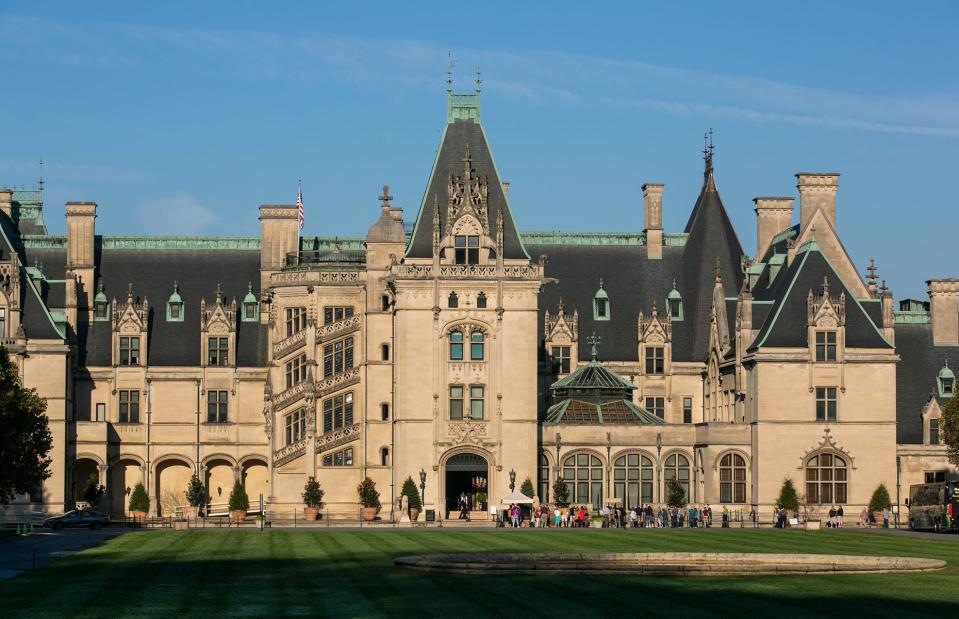
George Rose/Getty Images
While the lion’s share of Vanderbilt mansions no longer belongs to the dynasty, the grandest of them all, Biltmore in North Carolina, has stayed in the family and is currently owned by Bill Cecil and his sister Dini Pickering, the great-great-grandchildren of William Henry Vanderbilt.
Generous trust funds and enviable connections have helped a number of Vanderbilts stay relatively rich.
The Vanderbilts: now

Robin Marchant/Getty
Socialite, artist and fashion designer Gloria Vanderbilt, a great-granddaughter of William Henry Vanderbilt, was reported to be worth in the region of $200 million, the equivalent of $245 million (£192m) in today's money, before her death in 2019. Much of her fortune was made up of cash from her trust fund, not to mention earnings from the New Yorker's eponymous fashion line.
Gloria Vanderbilt's son, Anderson Cooper, had said he wouldn't inherit a dime of his mother's money. But Cooper did receive most of her fortune, although her estate was actually only worth $1.5 million (£1.2m) according to the New York Post.
The Vanderbilts: now
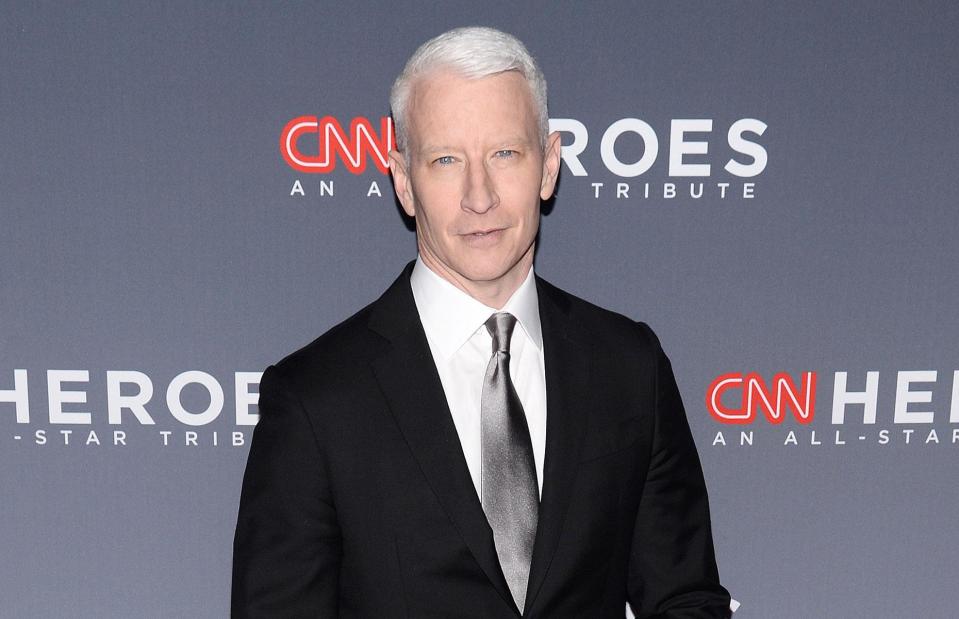
Anthony Behar/SIPA USA/PA
However, Cooper was already rich in his own right. The award-winning TV journalist earns a reported $11 million (£8.6m) a year from his CNN gig. Today, he has an estimated net worth of $50 million (£39m). Gloria's New York apartment was given to her other son Leopold Stokowski.
Other notable and affluent descendants of Cornelius Vanderbilt include Blenheim Palace custodian the 12th Duke of Marlborough ($240m/£188m), who is related to the patriarch through his great-grandmother Consuelo Vanderbilt, Hollywood screenwriter James Vanderbilt ($20m/£16m), and actor Timothy Olyphant ($20m/£16m).
Now discover what happened to the fortune of the world's first billionaire

 Yahoo Finance
Yahoo Finance 